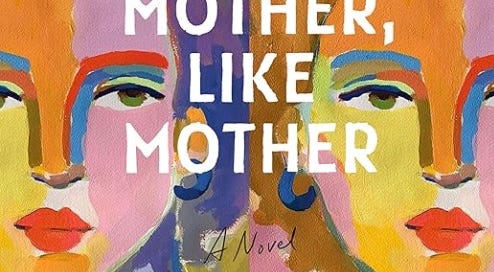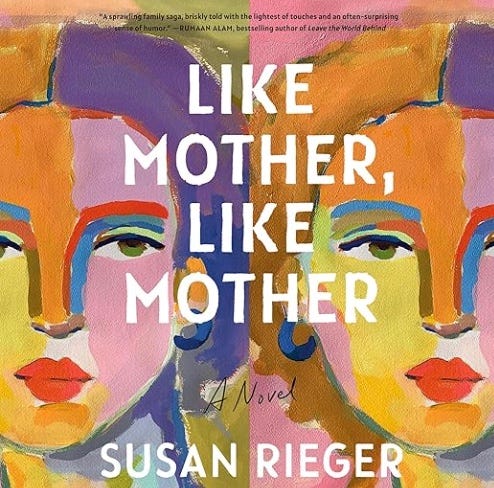BookLife Review: Like Mother, Like Mother (Susan Rieger, author) by Carol O’Day
Contemporary fiction, family saga, three generations, Detroit, 1960s, journalism, domestic abuse, child abuse, parenting, motherhood, mysterious disappearance, investigation, generational trauma.
Mothering is modeled. Children learn what parenting looks like by observing and experiencing their own parents. When the model is damaged, or absent, the impact can be generational. Like Mother, Like Mother by Susan Rieger introduces three generations of women impacted by the consequences of one abusive marriage.
In Detroit in the 1960s, Zelda is married to Aldo Pereira. Aldo is mean, misogynistic, and abusive. He beats and controls Zelda. Not long after she bears her third child, Aldo has Zelda committed to an institution to have her treated for “hysteria” and depression. His toughened mother, known to her grandchildren as Bubbe, moves in to care for Zelda and Aldo’s three children. Aldo also abuses the children. The bulk of his anger lands on the youngest and weakest, Lila. Aldo informs his children that their mother died in a fire in the hospital. Lila’s attempts to locate her mother’s grave or proof of her death go unsatisfied.
Lila grows, hardened by her childhood, and becomes a successful journalist. She meets a wealthy and kind man, Joe, and they marry. Lila has no interest in mothering her children and Joe agrees to be the primary caretaker. The couple has three daughters. The first two are one year apart and are inseparable, virtual twins. The third, Grace, was born almost a decade later. Lila rises in her career and ultimately becomes the editor of a major newspaper in Washington, DC. Lila is a thoroughly absent mother, though Joe dotes on his children.
Unlike her older sisters, who grow in happy companionship and seem to accept their mother’s absence from their life, Grace harbors resentments about her mother’s absences from her daily childhood experiences and longs for more of her attention and affection. Lila is deeply committed to her career and is unyielding to Grace’s complaints and pleas. Grace finds solace in college through her best friend Ruth, an only child raised by her mother and grandmother, and in Frances, her father’s mother. Grace is fixated on Lila’s childhood and, in particular, in the fate of Zelda. Grace fervently believes that Zelda did not die in the institution, but escaped and lived another life. Grace writes a novel, not very loosely based on Zelda and Lila’s story, to the dismay of her family, though Lila seems to accept it in stride. After Lila’s death, Grace pursues her quest to learn what became of Zelda. What she ultimately learns bends family history in ways neither Grace nor any of her family or Lila’s sister, expected. Grace does not find peace until she becomes a mother herself.
Rieger’s novel presents questions about motherhood, parenting and generational patterns. It eschews the notion of a maternal “instinct” and digs deeply into the concept of modeling and learned behaviors. Underlying her story is the sobering reality of the impact of abuse and neglect on children and the domestic abuse that often accompanies it. Like Mother, Like Mother is a survival story, a family saga and one that makes us ponder questions about how we learn to parent. Is the bond between a mother and child immutable? Is it instinctive? Under what conditions can it be broken, or severed entirely? What becomes of mother and child when that happens? How do we learn to parent a child? Is there a difference between mothering by the female spouse and a male spouse? When a woman who is a mother pursues a career to the exclusion of virtually any parental engagement, is this different than when a father does? Why? Are we so deeply conditioned to accept gender roles in parenting that this choice by a woman is considered a flaw? Or is it a function of some underlying wound that taints even the minimal interactions between a career parent and a child?
Consider supporting BookLife: Reviews for Readers and independent booksellers by purchasing Like Mother, Like Mother using the Bookshop.org link to the BookLife shop below.
Purchase Like Mother, Like Mother here.
Or, if you are an Amazon devotee, please support BookLife: Review for Readers by purchasing Like Mother, Like Mother on Amazon, using the BookLife affiliate link here
Purchase Like Mother, Like Mother on Amazon by clicking on this link






